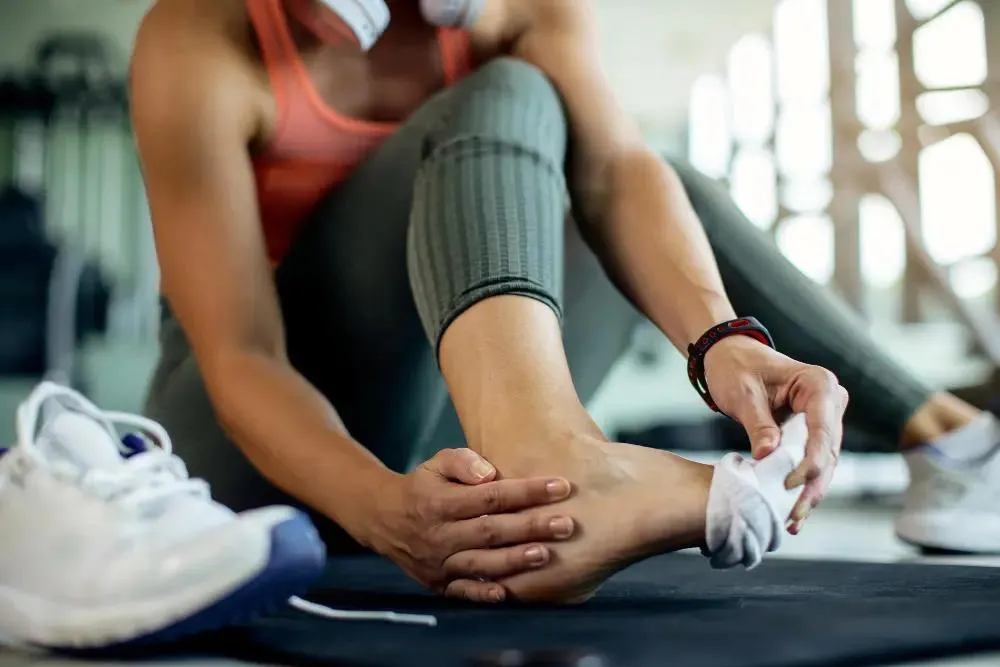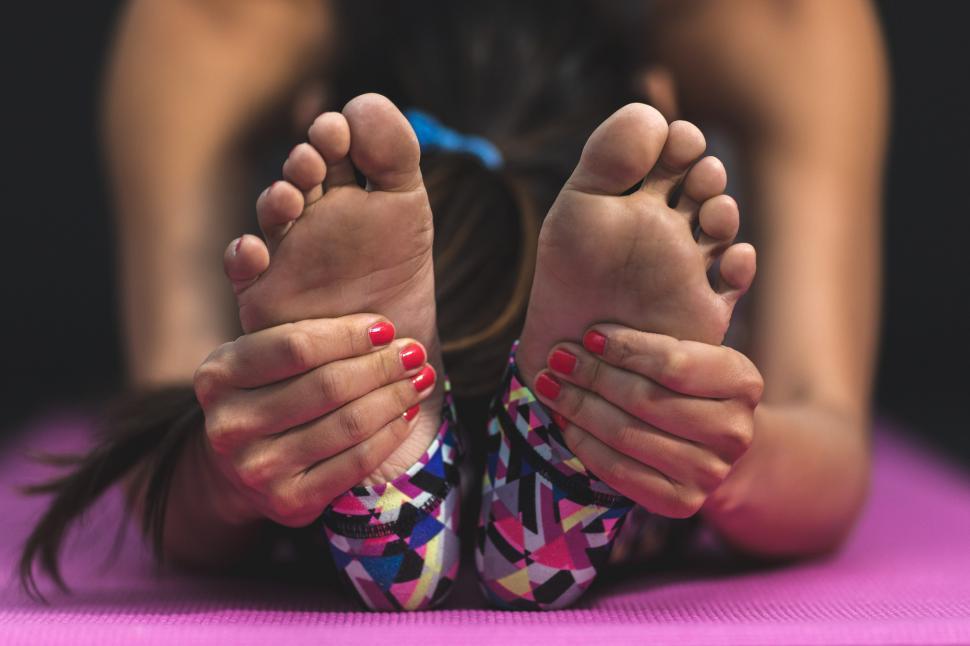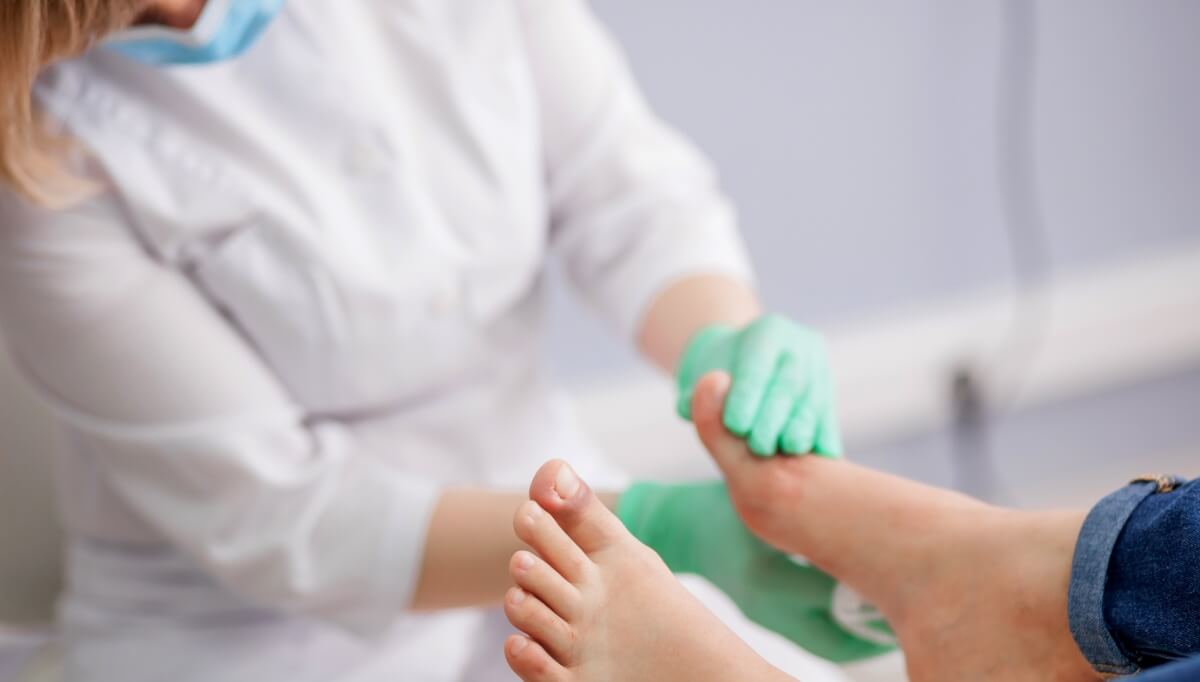When you think of improving your overall wellness, your mind probably jumps to eating healthy, exercising regularly, managing stress, or getting better sleep. But Foot Health? Most people give it little attention—until they experience pain or discomfort. However, your feet are a critical foundation of your body’s well-being. Every day, your feet bear your entire body weight and help you perform essential activities, from walking and running to standing and balancing. If something goes wrong with your feet, the effects ripple through your entire body, impacting mobility, posture, circulation, and even mental health. In this article, we’ll explore why healthy feet are so vital to your total wellness—and how you can better care for them to feel your best from head to toe.
The Role of Feet in Overall Health
Your feet are marvels of engineering. Each foot contains 26 bones, 33 joints, and over 100 muscles, tendons, and ligaments that all work in harmony to support motion, absorb shock, and provide balance. Without your feet, the simple act of standing upright would be impossible. But the importance of your feet extends far beyond locomotion. They serve as the foundation for posture and alignment. When foot structure or function is compromised, it throws off your entire skeletal alignment, leading to discomfort and dysfunction elsewhere in the body.
Furthermore, your feet serve as early warning systems for many underlying health issues. For example, circulatory problems often show up first in the lower extremities. If blood isn’t flowing properly to your feet, you may experience coldness, numbness, or slow-healing sores. Nerve damage—such as that caused by diabetes—often manifests in the feet first. In fact, foot symptoms are sometimes the very first signs of a serious medical condition. By taking foot health seriously, you aren’t just protecting your mobility—you’re proactively safeguarding your overall well-being.
How Foot Health Impacts Mobility and Balance
Mobility is key to living a long, independent life, and foot health is central to maintaining that mobility. When your feet are painful or injured, your ability to move comfortably is instantly compromised. Painful foot conditions like plantar fasciitis, bunions, or arthritis often lead to altered gait patterns as you subconsciously compensate for the discomfort. These compensations put extra stress on other joints and muscles, creating a cycle of dysfunction.
Balance is equally dependent on healthy, well-functioning feet. The feet provide constant feedback to the brain about your body’s position in space—a sense known as proprioception. If this feedback is disrupted due to nerve damage, poor footwear, or deformities, your stability suffers. This is especially dangerous for older adults, as falls are a leading cause of injury in people over 65. Maintaining strong, flexible, and pain-free feet directly reduces fall risk and allows you to stay active longer. An investment in foot health today can literally help you stay on your feet for years to come.
The Critical Link Between Posture, Alignment, and Foot Health
Your feet are not isolated body parts—they influence every joint and muscle above them. Poor foot mechanics can cause a cascade of postural problems that affect the ankles, knees, hips, pelvis, spine, shoulders, and neck. For example, overpronation (rolling inward of the foot) forces your knees to rotate inward, which can misalign the hips and strain the lower back. Similarly, flat feet or collapsed arches deprive the body of natural shock absorption, leading to increased joint impact and fatigue.
Over time, these misalignments can contribute to chronic pain conditions such as plantar fasciitis, Achilles tendonitis, shin splints, hip bursitis, and lower back pain. Addressing foot mechanics through proper footwear, custom orthotics, and targeted strengthening can dramatically improve your posture and reduce pain throughout your body. If you’ve been struggling with unexplained back, hip, or knee pain, don’t overlook your feet—they may hold the key to your relief.
The Connection Between Circulatory Health and Foot Wellness
Your feet are the farthest point from your heart, making them particularly vulnerable to circulation problems. Poor blood flow to the feet can lead to symptoms like tingling, numbness, coldness, cramping, and even ulceration. Conditions like Peripheral Artery Disease (PAD) are often first detected in the feet and can indicate systemic cardiovascular risks.
For individuals with diabetes, foot circulation and sensation are even more critical. Diabetic neuropathy can cause a loss of protective sensation, so a person may not notice a cut or blister on their foot. Combined with reduced blood flow, even minor foot injuries can progress to infections or ulcers if untreated. In severe cases, amputation becomes necessary. Regular foot checks, proper footwear, and diligent medical management can help prevent these serious complications. Maintaining foot circulation isn’t just about healthy feet—it’s about whole-body cardiovascular health.
Common Foot Health Issues and Their Systemic Effects
One of the most common foot issues is Plantar Fasciitis, which involves inflammation of the ligament that supports the arch of the foot. The pain is often worst in the morning or after long periods of standing, and it can severely limit mobility. Over time, people with plantar fasciitis often change how they walk, which can lead to knee, hip, and back pain.
Bunions and hammertoes—caused by joint deformities—also disrupt proper foot function. They force the toes into unnatural positions, creating imbalances that strain the entire lower body. Even cosmetic foot problems, like calluses or corns, can alter gait when they cause enough discomfort.
Flat feet present another major challenge. Without a proper arch, the foot fails to absorb shock efficiently, causing stress on the ankles, knees, and hips. Flat feet also impair overall posture and may cause fatigue during walking or exercise.
For diabetics, neuropathy and ulcers are serious concerns. Because nerve damage reduces sensation, injuries may go unnoticed until they become infected. Poor foot health in diabetics is one of the leading causes of lower limb amputations worldwide. The connection between foot problems and systemic effects is clear: what starts as a minor foot issue can snowball into a life-altering medical crisis if neglected.
The Impact of Foot Health on Mental Well-being
Foot health also has a profound effect on mental and emotional well-being. Chronic foot pain leads to physical inactivity, which in turn can contribute to weight gain, cardiovascular issues, and depression. People who can’t walk comfortably may withdraw from social activities, hobbies, and family events. This isolation can foster feelings of frustration, helplessness, and anxiety.
Conversely, being able to move confidently on healthy feet supports mental wellness. Regular physical activity releases endorphins that boost mood and reduce stress. Walking, dancing, and participating in community activities enriches life and enhances emotional resilience. Protecting foot health is therefore a key component of mental health maintenance—not just a physical concern.
How to Maintain Healthy Feet
The good news is that maintaining healthy feet is highly achievable with consistent care. Start by inspecting your feet daily. Look for blisters, sores, redness, or swelling. Clean your feet thoroughly and dry them well, especially between the toes. Moisturize the skin to prevent cracks, but avoid applying lotion between the toes to reduce the risk of fungal infections.
Invest in quality footwear that offers proper arch support, cushioning, and room for the toes. Avoid high heels or narrow shoes that force your foot into unnatural positions. Stretch your calves, ankles, and toes regularly to maintain flexibility and range of motion. Strengthen your foot muscles with targeted exercises like toe curls and balance work.
Finally, visit a podiatrist annually—or more often if you have a medical condition like diabetes. Regular professional evaluations can catch early signs of foot problems and prevent serious complications down the road. Think of podiatry visits as an investment in your whole-body wellness.
Recognizing When to Seek Professional Foot Care
While some foot issues can be addressed with home care, others require professional attention. If you experience persistent pain that limits your activities, don’t ignore it. Likewise, numbness, tingling, color changes, non-healing wounds, or sudden swelling all warrant a visit to a specialist. Foot problems are much easier to treat in the early stages. Waiting until symptoms worsen only increases the risk of long-term complications. Remember: you deserve to move through life without foot pain. Don’t settle for anything less.
Garden State Foot & Ankle Group: Your Trusted Partner in Foot Health
At Garden State Foot & Ankle Group, we are passionate about helping patients achieve lifelong foot health. Led by the experienced Dr. Manooj Prasad, our team provides advanced, compassionate care for a wide range of conditions. We understand that foot health is intricately connected to overall wellness, and we treat each patient as a whole person—not just a set of symptoms.
We offer expert care for Diabetic Wound Care, Bunions and Hammertoes, Limb Salvage, Fracture and Trauma Management, and Heel Pain. We also provide personalized solutions such as Custom Orthotics for correcting biomechanical imbalances and Peripheral Artery Disease treatment to safeguard circulatory health.
Dr. Prasad is a board-certified foot and ankle surgeon with more than 20 years of experience. He is affiliated with top regional hospitals and stays current with the latest advances in podiatric medicine. Whether you’re an athlete recovering from injury, a diabetic patient managing foot risks, or someone simply seeking to walk more comfortably, Garden State Foot & Ankle Group is here to help.
Take the First Step Toward Better Foot Health Today
Healthy feet make life better—plain and simple. When your feet feel good, you can move through life with confidence, ease, and energy. If you’ve been struggling with foot pain, balance issues, or mobility concerns, it’s time to take action. The sooner you address foot health, the sooner you’ll reclaim your overall wellness.
At Garden State Foot & Ankle Group, we’re honored to be your partner on this journey. Our caring team is ready to help you restore comfort, prevent future problems, and enjoy a vibrant, active life.
Contact us today to schedule your consultation—because wellness truly begins from the ground up.
Contact Information
Don’t wait until a minor foot issue becomes a major problem. Contact us today for specialized care tailored to your needs.
Toms River Office
📍 664 Commons Way Building 1
Toms River, NJ 08755
📞 Phone: (732) 557-9900
📧 Email: gsfagroup@gmail.com
Belleville Office
📍 1 Clara Maas Drive
Belleville, NJ 07109
📞 Phone: (973) 450-3035
🌐 Website: gsfagroup.com

0 Comments